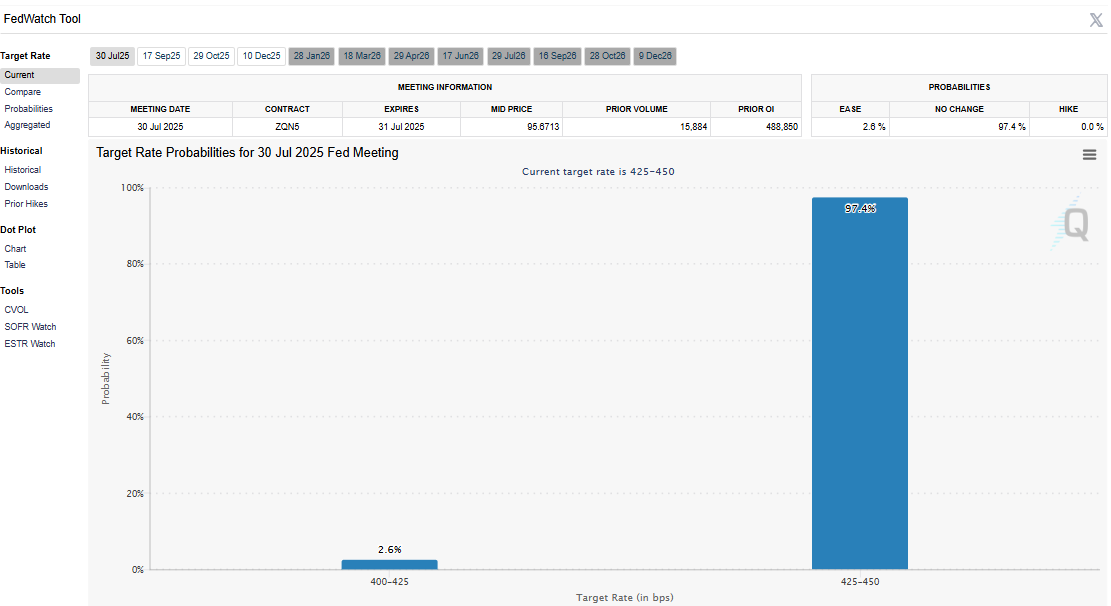

US producer prices were unchanged in June, slower than expected. The Producer Price Index (PPI) held steady month-over-month, below the consensus forecast of a 0.2% increase, while annual PPI rose 2.3%.
Despite a notable two-month surge in durable goods prices - the largest since mid-2022 - discretionary consumer spending weakened in the second quarter, prompting widespread discounting in travel services. This soft demand helped contain inflation, even as tariffs began to push up goods prices. Economists expect the inflationary impact of tariffs to grow in coming months, though weak business pricing power may continue to blunt their effect.
"Tariffs are raising the prices of goods but are being offset by lower prices of nontraded services. The inflationary impact of tariffs will likely increase in coming months; even so, weak business pricing power may continue to brunt their effect on inflation," Comerica Chief Economist Bill Adams wrote to InvestmentNews in an email.
The latest PPI data suggests the Personal Consumption Expenditures (PCE) price index was flat in June, with core PCE - excluding food and energy - edging down 0.1%, reinforcing the view that inflation remains under control.
The Federal Reserve is expected to hold interest rates steady at its upcoming meeting.
"Disinflation remains, but the Fed will be undeterred in keeping rates steady until September. As long as the labor market remains strong and resilient, rates aren’t likely to move meaningfully lower, and that’s a good thing. Inflation has hurt millions of Americans and being able to focus on that was needed," Jamie Cox, managing partner at Harris Financial Group, wrote in an email to InvestmentNews.

Additionally, the Fed's Beige Book revealed 10 out of 12 districts expect future economic activity to either flatline or soften in the coming months. Investors should expect margin compression as businesses held off raising prices because of customers’ growing price sensitivity. Business leaders in several districts plan to postpone both hirings and layoff decisions until they get clarity about trade policy.
"Overall business activity was up in the last month, but the outlook was slightly more pessimistic. We should be watchful for signs of margin compression at the business level, financial stress via rising delinquency rates, and a sluggish housing market as inventories rise," LPL Financial's Chief Economist Jeffrey Roach wrote.

From building trust to steering through emotions and responding to client challenges, new advisors need human skills to shape the future of the advice industry.

"The outcome is correct, but it's disappointing that FINRA had ample opportunity to investigate the merits of clients' allegations in these claims, including the testimony in the three investor arbitrations with hearings," Jeff Erez, a plaintiff's attorney representing a large portion of the Stifel clients, said.

Chair also praised the passage of stablecoin legislation this week.

Maridea Wealth Management's deal in Chicago, Illinois is its first after securing a strategic investment in April.

A new PitchBook analysis unpacks sticking points relating to liquidity, costs, and litigation risk for would-be investors and plan sponsors.
Orion's Tom Wilson on delivering coordinated, high-touch service in a world where returns alone no longer set you apart.
Barely a decade old, registered index-linked annuities have quickly surged in popularity, thanks to their unique blend of protection and growth potential—an appealing option for investors looking to chart a steadier course through today's choppy market waters, says Myles Lambert, Brighthouse Financial.
